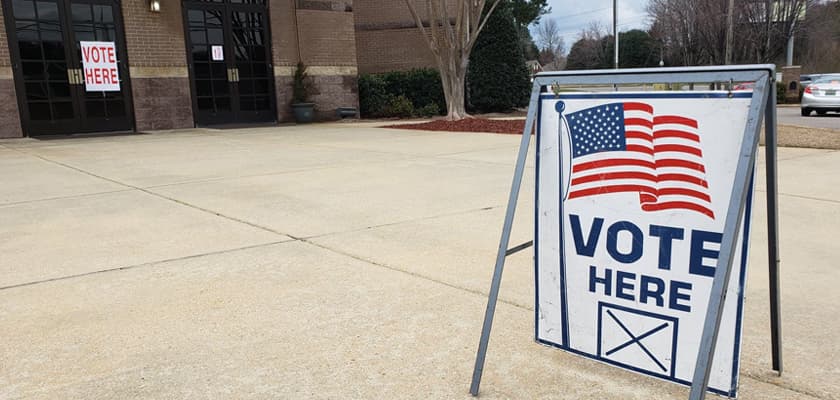Montgomery County Circuit Judge Greg Griffin dismissed a lawsuit seeking to prohibit the use of electronic voting machines, claiming the machines made elections "unsecure and fatally compromised."
In the order, Griffin said the "Court lacks subject matter jurisdiction because Plaintiffs have alleged only a speculative injury that does not support standing. The Court additionally lacks subject matter jurisdiction because Plaintiffs' alleged injuries are neither traceable to nor redressable by Defendants, because sovereign immunity pursuant to § 14 of the Alabama Constitution bars this suit, and because the jurisdiction-stripping statute bars this suit. This Court holds that even if it were to reach the merits, it would find that Plaintiffs fail to state a claim."
The plaintiffs in the lawsuit are State Rep. Tommy Hanes (R-Bryant), David Calderwood and Focus on America. Lindy Blanchard was an original plaintiff in the case but recently backed out of the suit due to connections between write-in campaigns and the lawsuit.
In the motion to dismiss, attorneys for the state, including Alabama Attorney General Steve Marshall, said the plaintiffs filed the lawsuit "based on nothing more than speculation and innuendo." They said there were documents showing the Committee publicly inspected voting machines before the election was certified.
Melissa Isaak, attorney for the Plaintiffs, noted the top three issues she believes were overlooked by the court.
"Steve Marshall, John Merrill and the members of the electronic voting committee were provided a video of an electronic voting machine counting counterfeit ballots," Isaak said to Focus on America. "It was irrefutable that the machines were not functioning properly and there has been no concern shown from any of these elected officials.
"In May of this year, John Merrill said that the 'hardened' stand-alone computers used in the election 'cannot be connected to the internet.' This was shown in court to be false as WiFi and Bluetooth connectivity was specifically requested in Merrill's own purchase orders.
"Plaintiffs presented the world's top cyber security experts who testified that Alabama's electronic voting systems are NOT secure, and even if not connected to the internet, they can still be hacked."
The judge also denied a preliminary injunction stating, "Plaintiffs failed to meet the four required elements of a party seeking a preliminary injunction to which no preliminary injunction can issue. Plaintiffs have a higher burden than usual because they seek a mandatory preliminary injunction that would change the status quo.
"Plaintiffs fail to meet their burden. First, Plaintiffs fail to establish irreparable harm because their alleged injury is speculative. Further, the named Plaintiffs have failed to offer any testimony—whether by declaration or live at the hearing—to substantiate any allegations regarding their own circumstances. And without such evidence, Plaintiffs has not met their burden to show that they themselves would suffer immediate and irreparable injury. Additionally, Plaintiffs have not shown that they are likely to prevail on the merits, and they have not shown that the balance of equities weighs in their favor given the significant financial and administrative burdens that their requested relief would impose and given that the 2022 General Election is only 59 days away."
The defendants claimed none of the machines in Alabama connect to the internet or cellular connections.
To connect with the author of this story, or to comment, email erica.thomas@1819news.com.
Don't miss out! Subscribe to our newsletter and get our top stories every weekday morning.










